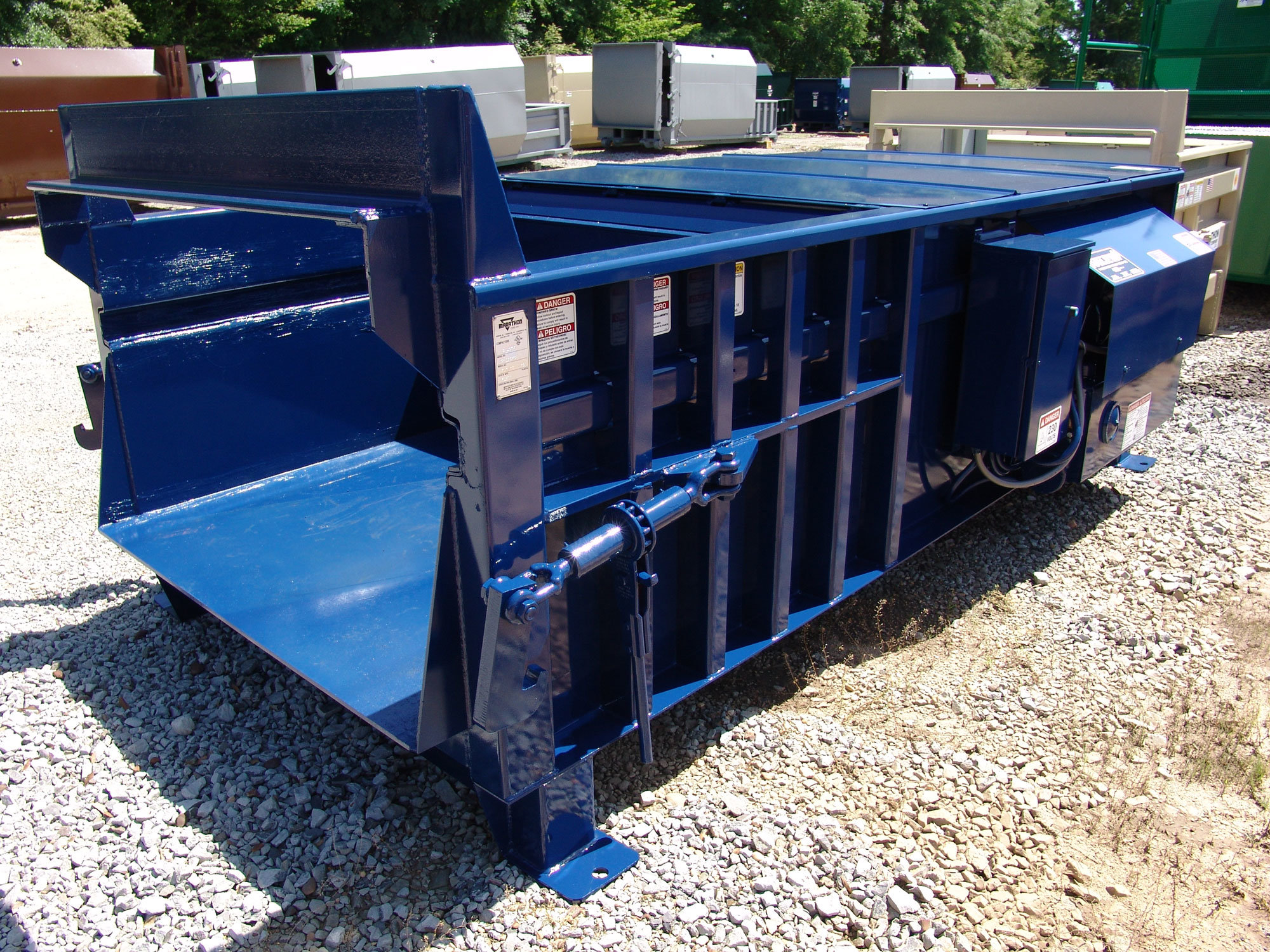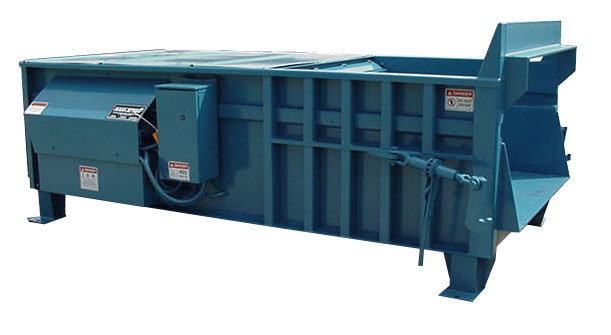The Function of Waste Equipment in Encouraging Sustainable Waste Disposal Practices
Waste Equipment offers a basic function ahead of time sustainable garbage disposal practices. It incorporates an array of tools created to boost the efficiency of waste collection, handling, and partition. By utilizing Equipment such as compactors, shredders, and reusing containers, neighborhoods can significantly lower their dependence on land fills. The impact of these tools prolongs past capability. Recognizing their wider effects discloses understandings into just how they shape environmental obligation and area interaction. What lies ahead in this progressing landscape?
Understanding Waste Equipment and Its Relevance
Waste Equipment plays a crucial function in effective waste administration systems. It incorporates a range of devices and equipment made to handle, procedure, and get rid of waste materials successfully. Comprehending waste Equipment is necessary for organizations, towns, and services aiming to apply lasting garbage disposal practices - Commercial garbage compaction equipment. Appropriately operating waste Equipment not only streamlines the collection and transportation of waste but additionally minimizes ecological influence by guaranteeing that waste is handled properly
The importance of waste Equipment extends to boosting recycling initiatives, minimizing land fill usage, and advertising resource healing. Equipment such as shredders, balers, and compactors help with the handling of waste, making it less complicated to separate recyclable materials from general refuse. Furthermore, improvements in waste modern technology add to the advancement of more environmentally friendly solutions, thus enhancing the commitment to sustainability. Overall, waste Equipment works as a cornerstone for efficient waste management, fostering a cleaner and much healthier setting for future generations.
Sorts Of Waste Equipment for Effective Waste Management
Reliable waste administration relies on various kinds of Equipment developed to address certain disposal requirements. Among these, compactors play a crucial role by lowering the quantity of waste, making transportation a lot more efficient. Shredders are essential for damaging down large things, facilitating less complicated handling and disposal. Additionally, balers compress recyclable products into workable bundles, maximizing storage space and transportation.
Containers and bins are basic for gathering waste at the source, guaranteeing correct partition and minimizing contamination. For harmful products, specific Equipment, such as drum crushers and watertight containers, is essential to assure security and compliance with laws.
Transportation lorries furnished with hydraulic systems improve the performance of waste collection and disposal procedures. Each sort of waste Equipment adds to a structured waste monitoring system, promoting sustainability and lowering ecological effect through reliable disposal practices.
The Role of Recycling Bins in Lasting Practices
Recycling containers play an important role in advertising sustainable techniques by helping with reliable waste separation. By giving marked containers for recyclable materials, they encourage individuals to embrace eco-friendly behaviors. This easy execution greatly adds to minimizing landfill waste and enhancing recycling rates.
Efficient Waste Splitting Up
Correct waste separation plays a vital function in advertising lasting methods, and recycling containers act as a considerable tool in this process. By plainly comparing recyclables, compostables, and basic waste, these containers promote reliable sorting, lessening contamination and taking full advantage of recycling efficiency. Their critical positioning in private and public spaces urges individuals to get involved in liable waste disposal. The use of color-coded bins helps to simplify the separation procedure, making it user-friendly for users. This organizational approach not only boosts reusing prices however additionally increases recognition regarding the importance of waste monitoring. Basically, recycling bins are essential elements that sustain efficient waste splitting up, ultimately adding to an extra sustainable atmosphere and minimizing the general pressure on land fills.
Motivating Eco-Friendly Actions
Although people might be inclined to forget their influence on the setting, the visibility of reusing containers greatly influences eco-friendly behavior. These containers offer as visual tips, encouraging people to separate recyclables from basic waste. Their calculated positioning in public areas promotes availability, making it easier for individuals to adopt lasting methods. Research studies show that when recycling containers are offered, recycling rates increase considerably, mirroring a straight correlation in between framework and habits. Additionally, vibrant signage on these bins informs individuals about what materials can be reused, minimizing contamination rates. By fostering a culture of recycling, these bins not only assist in appropriate waste administration yet also motivate a collective responsibility toward environmental stewardship, ultimately adding to an extra lasting future.
Composting Systems: Transforming Waste Into Resources
Composting systems function as a vital tool in transforming natural waste right into useful sources, providing numerous environmental advantages. Numerous kinds of composting Equipment satisfy different needs, making the process accessible to both communities and individuals. Recognizing the composting procedure is necessary for maximizing its efficiency and promoting lasting waste administration methods.
Benefits of Composting Equipments
Several areas are increasingly recognizing the various benefits of composting systems, which transform organic waste right into useful resources. These systems effectively lower landfill waste, therefore lowering greenhouse gas exhausts and preserving natural deposits. By converting food scraps, yard waste, and various other natural materials right into nutrient-rich compost, they enhance soil health and fertility, advertising sustainable farming techniques. Composting helps to retain moisture in the dirt, reducing the need for chemical fertilizers and watering. It promotes biodiversity by supplying an environment for advantageous microbes and bugs. Additionally, composting enlightens people regarding environmental stewardship, motivating a culture of sustainability. In general, composting systems play an essential function in creating a round economic climate, where waste is reduced, and resources are recycled.
Sorts Of Composting Equipment
A range of composting Equipment is offered to facilitate the reliable processing of organic waste right into beneficial compost. These systems vary from simple yard compost bins to advanced commercial composters. For home use, tumblers and static bins are prominent, enabling for convenient aeration and blending. Oxygenated static stacks make use of blowers to improve air movement, significantly speeding up decomposition. Large procedures might use in-vessel composters, which manage temperature and humidity for optimal composting conditions. Worm composters, or vermicomposting systems, harness the natural digestive system processes of worms to break down raw material. Additionally, shredders and chippers help prepare products by lowering dimension, promoting faster malfunction. Each kind of Equipment serves specific needs, enabling diverse composting practices that contribute to sustainable waste management.
Composting Refine Explained
The composting procedure changes organic waste into nutrient-rich sources via a series of chemical and organic responses. Initially, microbes such as fungi and microorganisms break down organic products, consisting of food scraps and backyard waste. This disintegration produces warm, promoting additional microbial task and accelerating the break down process. As the garden compost develops, the temperature level decreases, permitting advantageous microorganisms to thrive. The visibility of oxygen is necessary, promoting cardio conditions that boost microbial efficiency. Throughout this process, carbon-to-nitrogen ratios must be preserved to maximize decomposition. Completion outcome is humus, a dark, crumbly substance rich in nutrients, which can be utilized to enhance dirt, support plant growth, and add to lasting farming methods.
Ingenious Technologies in Waste Collection and Disposal
As cities grapple with increasing waste volumes and ecological concerns, cutting-edge modern technologies in waste collection and disposal arise as necessary services. Smart waste containers equipped with sensing units track fill levels, enhancing collection paths and minimizing gas intake. These containers can also connect with waste administration systems, minimizing and assisting in prompt pickups overflow issues. Additionally, autonomous cars, including drones and robot systems, are being deployed to improve operational effectiveness in waste collection.
Innovations in sorting modern technologies, such as expert system and equipment understanding, allow more reliable reusing procedures by quickly identifying and dividing materials. Waste-to-energy innovations transform natural waste right into renewable energy, decreasing garbage dump reliance and adding to energy sustainability. These advancements not only streamline waste management techniques but also advertise a circular economy, consequently fostering a lasting technique to lose More Help disposal. Eventually, the combination of these technologies plays an essential function in resolving urban waste difficulties and enhancing environmental stewardship.
Area Interaction With Waste Equipment
While reliable waste management relies heavily on sophisticated innovations, neighborhood interaction with waste Equipment plays an important role in promoting lasting methods (Commercial garbage compaction equipment). Waste Equipment, such as reusing bins and composting stations, offers not just as useful devices but also as stimulants for neighborhood understanding and engagement. By placing my site these resources in obtainable places, towns motivate individuals to take an active role in waste reduction and reusing efforts
Educational campaigns coming with waste Equipment installments can additionally improve area participation, guiding residents on correct disposal approaches and the advantages of lasting practices. In addition, regional occasions that make use of waste Equipment, such as clean-up drives and reusing obstacles, inspire collective activity and develop a feeling of obligation among neighborhood participants.

The Future of Waste Management and Lasting Solutions
Innovations in modern technology and changes in societal attitudes are shaping the future of waste administration and lasting options. Smart waste monitoring systems, making use of IoT tools, are making it possible for real-time surveillance of waste degrees, optimizing collection routes, and lowering carbon impacts. These improvements not just enhance efficiency but also promote recycling and composting initiatives by supplying data-driven understandings.
In addition, the surge of circular economy practices motivates firms to reassess item layout, concentrating on reusability and recyclability. This shift cultivates a society of sustainability, where consumers are significantly requiring eco-friendly products.
In addition, community participation in waste monitoring is becoming significantly crucial, with curricula equipping people to take responsibility for their waste. As governments worldwide apply more stringent policies on waste disposal, services and areas are prompted to embrace sustainable methods. With each other, these aspects lead the his explanation means for a future where waste is minimized, and sources are saved, ensuring a much healthier planet.
Regularly Asked Concerns

Exactly How Can Organizations Profit Monetarily From Buying Waste Equipment?
Buying waste Equipment can bring about significant financial benefits for companies. By improving efficiency, minimizing disposal expenses, and boosting reusing abilities, companies can decrease operational expenses and possibly produce revenue via recovered materials.
What Regulations Govern the Use of Waste Equipment in Various Regions?
Various laws regulate waste Equipment use, varying by region. These include environmental requirements, safety methods, and functional standards, targeted at guaranteeing compliance, promoting public wellness, and decreasing ecological effect connected with waste management techniques.
Just how Do I Choose the Right Waste Equipment for My Demands?
Choosing the ideal waste Equipment requires reviewing certain waste kinds, quantity, and disposal techniques. Researching offered alternatives, seeking advice from specialists, and considering governing conformity will assist in making an informed choice customized to individual demands.
What Are the Ecological Effects of Ineffective Waste Equipment?
Inefficient waste Equipment can cause increased discharges, higher power consumption, and greater garbage dump overflow. It usually results in improper waste segregation, aggravating pollution and negatively affecting ecosystems, which eventually impedes lasting waste administration initiatives.
How Can Waste Equipment Be Preserved for Optimum Performance?
Waste Equipment can be kept for peak performance through routine examinations, prompt fixings, proper cleaning, and adherence to producer standards. This assures efficiency, expands Equipment life expectancy, and decreases environmental effect throughout waste administration processes.
Waste Equipment plays a crucial role in efficient waste management systems. Understanding waste Equipment is vital for companies, services, and towns intending to apply lasting waste disposal methods. While reliable waste management depends greatly on advanced modern technologies, community interaction with waste Equipment plays an important function in cultivating lasting techniques. Community participation in waste management is coming to be progressively necessary, with academic programs equipping people to take responsibility for their waste. Choosing the ideal waste Equipment necessitates assessing details waste kinds, volume, and disposal techniques.